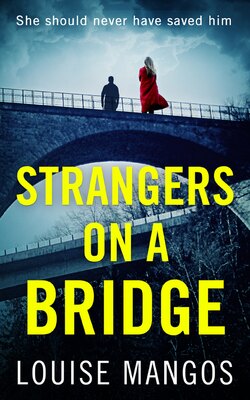Читать книгу Strangers on a Bridge - Louise Mangos - Страница 16
На сайте Литреса книга снята с продажи.
Chapter Eleven
Оглавление‘Mum, where are you going?’ Oliver asked. ‘We’re supposed to be driving to the sports store.’
I had taken a detour off the main road to Zug.
‘Oli, we are going to the store. Just taking a diversion today.’
I sucked in my lower lip. Avoiding the bridge was like suppressing the memory of that Sunday. I hadn’t driven the car anywhere outside the village since then. I made Oliver sit in the back. He complained at first, as he had only recently been allowed to ride up front, but relented when he found a long-lost electronic toy hidden in the depths of the rear seat pocket. He glanced out of the window briefly as we took the detour. After my laconic explanation, he went back to frantically clicking his game.
In the store, Oliver chose a new pair of shinpads and begged me to buy him a football shirt to add to the many in his collection. I was too weak to argue that he had enough football shirts. He climbed into the back of the car without prompting, happily clutching his bag. As I started the engine and began backing out of the parking space, he pulled his purchases out of the bag, absently looking at each item.
‘Oh, yeah, Mum, I was supposed to tell you something earlier and I forgot. There was a man outside the school today when we came out for lunch. He said he knew you, and he wanted me to say hello from him.’
My eyes darted to the rear-view mirror, searching Oliver’s face. He didn’t seem concerned, merely recounting an observation.
‘Who was it, Oli? Did he tell you his name?’ I asked lightly.
Oliver answered slowly, stretching out his new shirt to look at the logo.
‘That’s the thing. I can’t remember. I only remember he said to say hello to you.’
I took a deep breath.
‘Can you remember what he looked like?’
‘Um, a bit older than Dad, a bit taller maybe. He had kind of greyish hair.’
He sounded bored. Our eyes made brief contact in the mirror and he began shoving the shirt back in the shopping bag. His eyes glazed over as he looked out of the window.
‘Can you remember what he was wearing? Did he have glasses?’
‘Nah. Maybe. Don’t know. Too many questions, Mum. He just said to say hello. It’s no big deal, not like I had an important message to deliver, right?’
‘Was his name Manfred?’
‘Um… yeah, that was his name!’
‘Was anyone with you?’
‘What’s with the twenty questions? Is this a test? Actually, I was with Sara. We walk halfway home together most days. But don’t go thinking we’re an item. That’s totally not happening.’
‘It’s okay, Oli, I was just curious.’
‘Anyway, Sara and I always split after the basketball court, and the guy had gone by then.’
Oliver pushed the bag to one side, picked up the electronic toy and continued his clicking. I dragged my eyes back to the road from the mirror, biting my lip. How had he recognised Oliver? Had he seen us together at some stage? I wondered what Manfred was still doing in our village and guessed he had more business appointments there. I shrugged and indicated to turn up the hill towards home.
Carrying the shopping from the garage to the house, my mobile beeped. I put the bags down and checked the message.
Thanks for coffee the other day. He hadn’t signed it, but I knew it was Manfred. I hadn’t put his number in my contacts because I didn’t think I’d hear from him again.
I answered: But you paid.
He texted: Thanks for everything that went with the coffee.
I assumed he meant being able to talk to me. I wasn’t sure what to reply. You’re welcome seemed too gushy.
I texted simply: That’s okay.
When he texted back: We must do it again, I didn’t respond.
I picked up the shopping and paused to collect the post from the mailbox beside the door. In the parcel section underneath the letterbox lay a bunch of roughly picked marguerite daisies, stalks torn and bruised. Tied together with a stem of barley grass, it looked like a gift a child might leave. I often gave the farmer’s wife a bag of the boys’ outgrown clothes, and on more than one occasion had helped shoo the cattle back behind trampled fences. Their thanks often came in the form of a carton of fresh eggs from the farm.
‘Were the cows out again this week?’ I asked Oliver, knowing he and Leon were often enlisted to help put them back in the field. ‘Looks like the farmer’s kids have left us a gift.’
I took the marguerites with the post. Later that evening, as I began preparing dinner, I studied the flowers sitting in a glass of water on the bench in the kitchen and narrowed my eyes.
